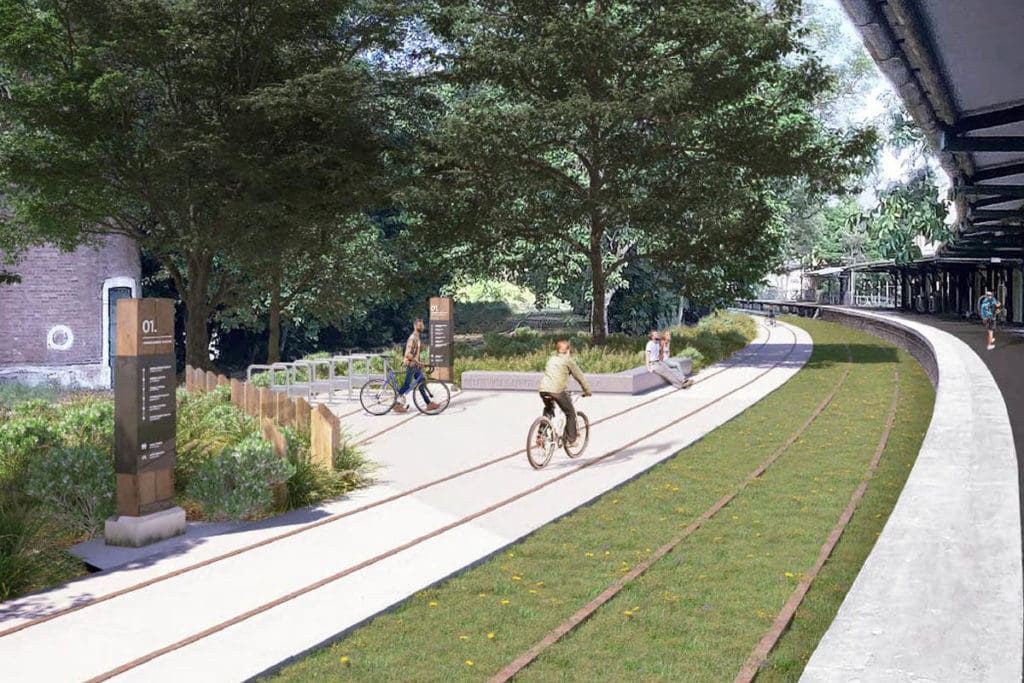Rail Trails Bill Speeds Through NSW Parliament

Sydney, NSW
A Rail Trails Bill to streamline the creation of rail trails in NSW has been passed by both houses of parliament on consecutive days last week.
The draft legislation – to amend the Transport Administration Act 1988 and authorise the temporary repurposing of all or part of a non-operational railway corridor in non-metropolitan areas – was supported by both major parties as it was passed in the Upper House on 10 August and the Lower House the following day.
Rail Trails Australia President Damian McCrohan said the organisation was incredibly pleased with the Bill’s passage and “surprised it has all happened so quickly after almost 20 years of effort and numerous failed attempts to make it easier to establish rail trails in NSW”.
He thanked the NSW government for its efforts in getting the legislation created and passed.
“Most importantly, we look forward to more rail trails being approved and funded given the release of their evaluation of the incredibly successful Tumbarumba Rail Trail and the rail trail establishment guidelines,” Damian said.
The legislation enables the Minister for Transport to grant 30-year leases to local governments for disused government-owned NSW rail corridors, to enable the corridors to be used for tourism purposes.
Previously, each rail trail proposal in NSW required a separate act of Parliament to ‘close’ and re-purpose the corridor, allowing political manoeuvring to block the progress of potential rail trail projects.
“This legislation will give communities a pathway to transform wasted spaces into treasured public places, opening up disused rail lines for amazing opportunities which include active transport, tourism and recreation.”
Rail trail proposals will still need to have demonstrated local community support and a positive business case.
Damian said local councils will continue to play a pivotal role.
“Rail Trails Australia welcomes the new legislation as a positive development for the future of rail trails in NSW, which remains behind other States and other countries in realising the many benefits that rail trails offer,” the organisation says in an update on its website.
“Rail Trails Australia commends the community groups who worked tirelessly for their achievement in being the catalyst for change.”
The NSW Minister for Active Transport, Rob Stokes, said the Bill’s adoption was a significant win for regional communities.
“This legislation will give communities a pathway to transform wasted spaces into treasured public places, opening up disused rail lines for amazing opportunities which include active transport, tourism and recreation,” the Minister said.
“Importantly, the land will remain in public hands and be protected for future generations.”
The NSW Nationals said the Bill “unlocks opportunities for communities and fixes outdated and onerous legislation that required a change to the Act for each rail trail”.
“This is not a green light for all disused rail corridors to become a rail trail.”
The legislative amendments “provide a streamlined process that may enable regional rail trails where and when the community wants them”.
“It will allow regional councils to transform these spaces into treasured public places, meaning projects that are consistent with the Rail Trail Framework and have broad community support will now be able to proceed, giving locals and visitors a way to explore the beauty regional NSW has to offer, free of charge,” the National said in a statement.
Nationals Minister for Regional Transport and Roads Sam Farraway said the improved process to authorise the use of non-operational rail lines for rail trails and related tourism uses will benefit rural communities and economies, without compromising on biosecurity or ongoing viability.
“The government’s approach makes the process for rail trail development more rigorous and transparent. This is not a green light for all disused rail corridors to become a rail trail,” Mr Farraway said.
“State-funded pilot projects have proved popular and beneficial. The first completed rail trail between Tumbarumba and Rosewood saw spend in the local economy increase 20% following its opening in mid-2020.
“The $4.9 million project has had over 15,000 visits so far and welcome economic stimulus from this has flowed to Snowy Valley businesses.
“All rail trails would be created under a lease agreement of up to 30 years with the local council. The agreement allows the Minister to terminate the lease should the corridor be required for a future transport use.”
